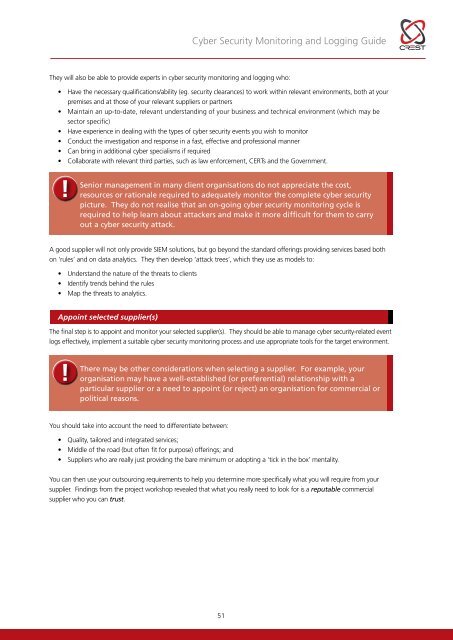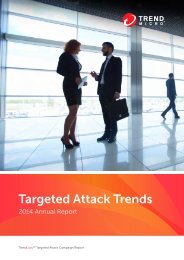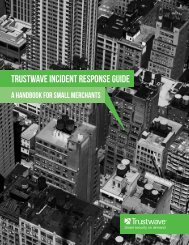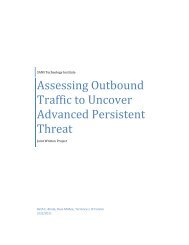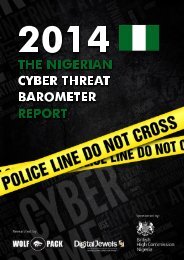Cyber-Security-Monitoring-Guide
Cyber-Security-Monitoring-Guide
Cyber-Security-Monitoring-Guide
You also want an ePaper? Increase the reach of your titles
YUMPU automatically turns print PDFs into web optimized ePapers that Google loves.
<strong>Cyber</strong> <strong>Security</strong> <strong>Monitoring</strong> and Logging <strong>Guide</strong>They will also be able to provide experts in cyber security monitoring and logging who:• Have the necessary qualifications/ability (eg. security clearances) to work within relevant environments, both at yourpremises and at those of your relevant suppliers or partners• Maintain an up-to-date, relevant understanding of your business and technical environment (which may besector specific)• Have experience in dealing with the types of cyber security events you wish to monitor• Conduct the investigation and response in a fast, effective and professional manner• Can bring in additional cyber specialisms if required• Collaborate with relevant third parties, such as law enforcement, CERTs and the Government.!Senior management in many client organisations do not appreciate the cost,resources or rationale required to adequately monitor the complete cyber securitypicture. They do not realise that an on-going cyber security monitoring cycle isrequired to help learn about attackers and make it more difficult for them to carryout a cyber security attack.A good supplier will not only provide SIEM solutions, but go beyond the standard offerings providing services based bothon ‘rules’ and on data analytics. They then develop ‘attack trees’, which they use as models to:• Understand the nature of the threats to clients• Identify trends behind the rules• Map the threats to analytics.Appoint selected supplier(s)The final step is to appoint and monitor your selected supplier(s). They should be able to manage cyber security-related eventlogs effectively, implement a suitable cyber security monitoring process and use appropriate tools for the target environment.!There may be other considerations when selecting a supplier. For example, yourorganisation may have a well-established (or preferential) relationship with aparticular supplier or a need to appoint (or reject) an organisation for commercial orpolitical reasons.You should take into account the need to differentiate between:• Quality, tailored and integrated services;• Middle of the road (but often fit for purpose) offerings; and• Suppliers who are really just providing the bare minimum or adopting a ‘tick in the box’ mentality.You can then use your outsourcing requirements to help you determine more specifically what you will require from yoursupplier. Findings from the project workshop revealed that what you really need to look for is a reputable commercialsupplier who you can trust.51


